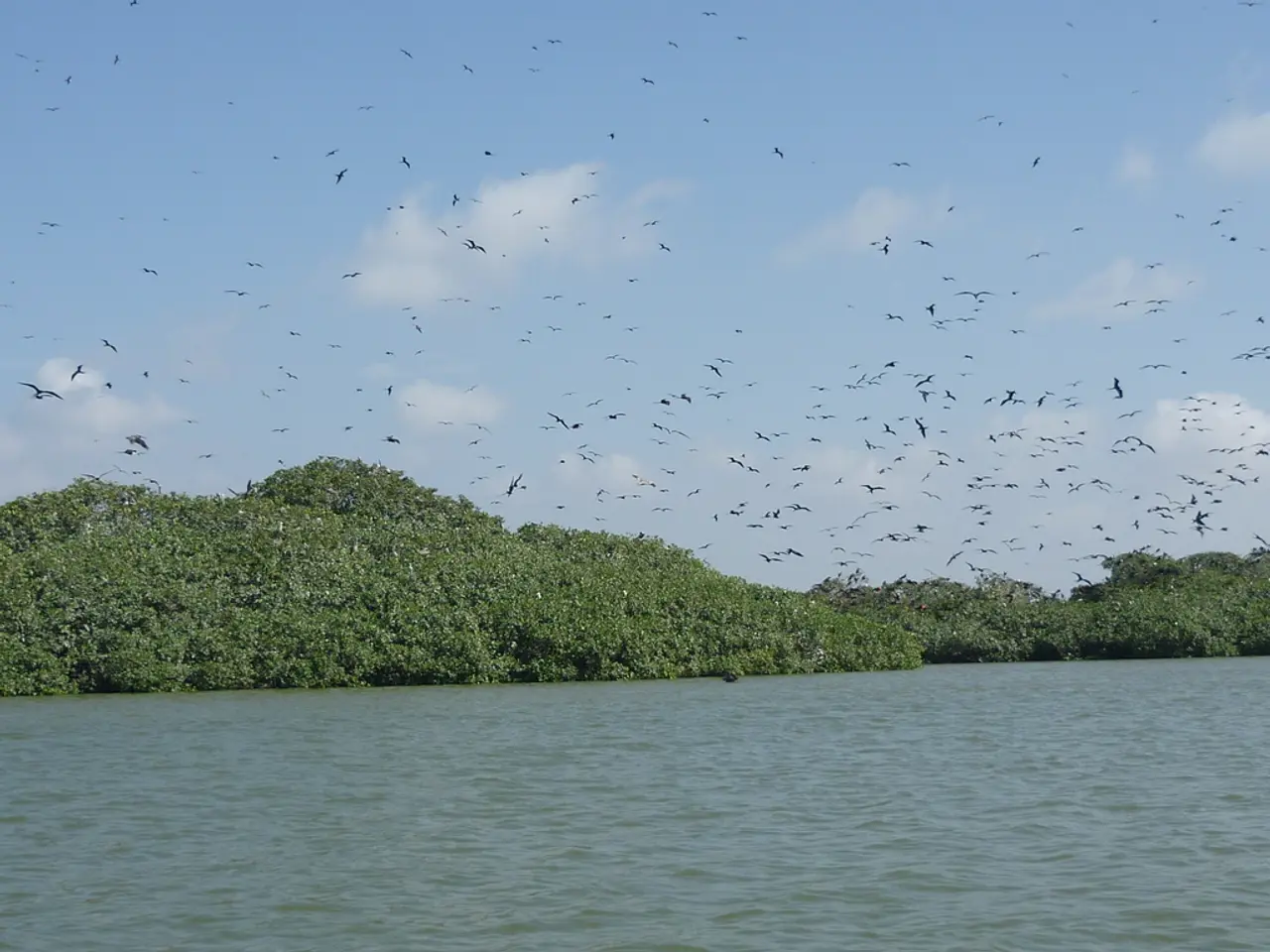Strengthened Perspective on Australia's Climate Policy due to Albanese's Definite Victory
Following the re-election of Prime Minister Anthony Albanese and the Australian Labor Party (ALP) in the recent federal election, investors are looking forward to a renewed focus on climate action during the Albanese government's second term.
The IGCC, a group representing investors with combined assets of over AUD 3 trillion, has expressed expectations for the Albanese government to raise ambition beyond current targets, deliver on renewable energy scale-up, pursue regional leadership in climate resilience, and ensure Australia’s climate policy withstands legal and scientific challenges.
One of the key expectations is the strengthening of emissions reduction targets for 2035. The government is currently considering a target for 2035, where independent advice from the Climate Change Authority recommends a reduction between 65% and 75% from 2005 levels. However, climate scientists argue this may not align with the 1.5°C global temperature goal, which may require up to a 90% reduction by 2035.
The Albanese government has already embedded serious climate targets in legislation, with goals such as a 43% emissions reduction by 2030. Investors expect the government to continue building on this legislative foundation, including finalising Australia’s first National Climate Risk Assessment and National Adaptation Plan to build resilience.
Investors also anticipate a continued drive for renewable energy infrastructure and reducing dependence on fossil fuels, both domestically and through regional partnerships. Australia is producing record renewable electricity, and emissions are currently lower than when the Albanese Government took office.
Given Australia’s geostrategic role and its climate vulnerability in the Pacific region, investors expect a strong push to support Pacific Island nations through finance, technology, and skills training to promote renewables and climate adaptation. This will reinforce Australia’s climate diplomacy and influence at regional and international climate forums, including efforts to host the UN Climate Talks.
With growing climate litigation globally and in Australia, investors anticipate that the Albanese government will need to respond to legal scrutiny by aligning policy with scientific duties of care and human rights obligations, increasing governmental accountability for climate action.
The re-election of Albanese matters to Australia's asset owners as it signals an increased appetite for climate solutions. In contrast, the opposition leader, Peter Dutton, was critical of the government's support for renewable energy and proposed increasing gas production and pivoting to nuclear energy. However, Dutton's failure to retain his seat implies confident continuity in Canberra's renewable energy plans.
Within 75 days of winning the previous election, the Albanese government introduced a climate change bill enshrining a 43% emissions reduction target by 2030 into law. In January this year, a mandatory disclosure regime for climate-related information came into effect.
The IGCC has also recommended a national climate risk assessment and a comprehensive adaptation strategy to the new government. The Investor Group of Climate Change has called for bipartisanship in climate policy to preserve the hard-fought progress made so far.
Economic damages from growing extreme climate events pose a significant risk to super funds and other investors delivering sustainable returns for their 15 million Australian members. As such, investors are keen to see the progress Australia is making towards a net zero, climate-resilient economy resume and accelerate in the coming months.
- The IGCC, with assets totaling over AUD 3 trillion, urges the Albanese government to increase the 2035 emissions reduction target beyond the current recommendations, potentially even up to 90%, to align with the global 1.5°C temperature goal.
- Given Australia's strategic position and climate vulnerability in the Pacific region, investors anticipate strong support for Pacific Island nations through financing, technology, and skills training to advance renewable energy and climate adaptation.
- With escalating climate litigation globally and in Australia, investors expect the Albanese government to respond to legal scrutiny by ensuring policy adherence to scientific duties of care and human rights obligations, increasing governmental accountability for climate action.








